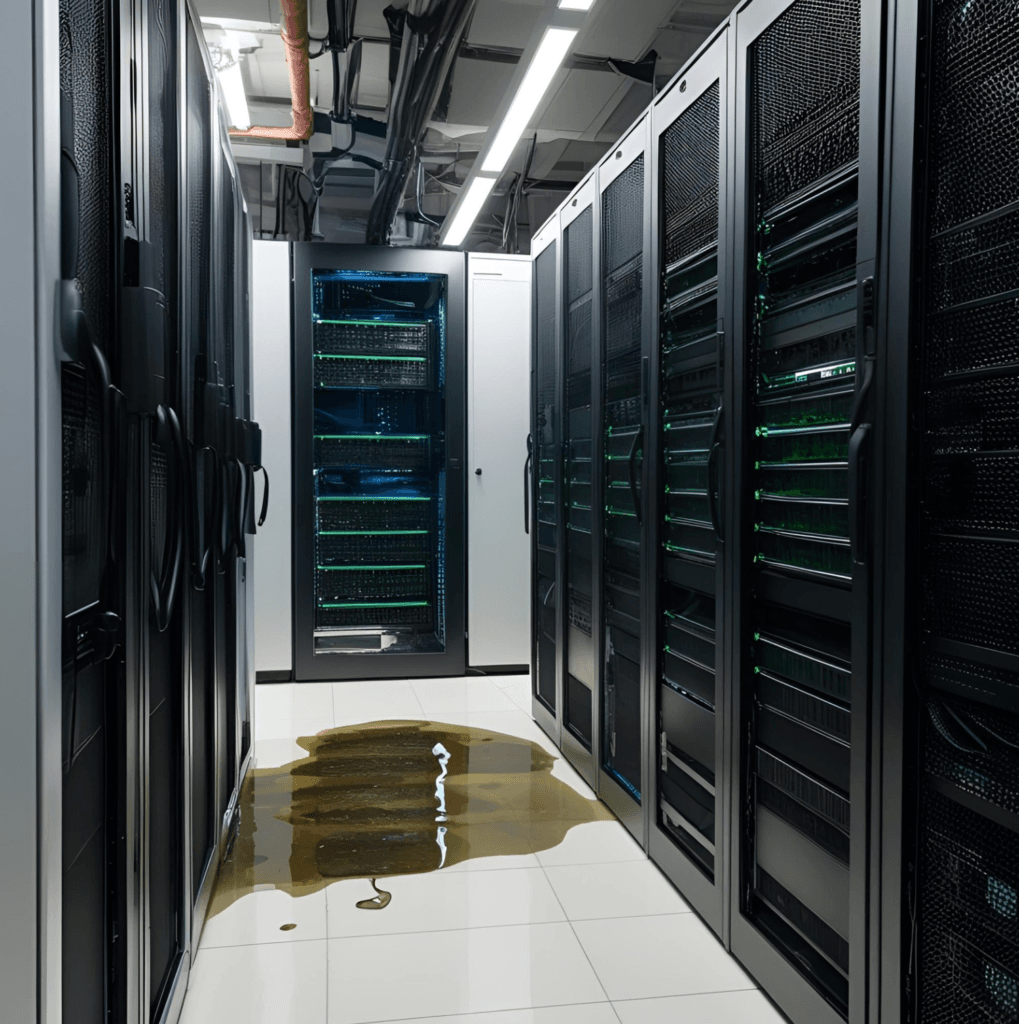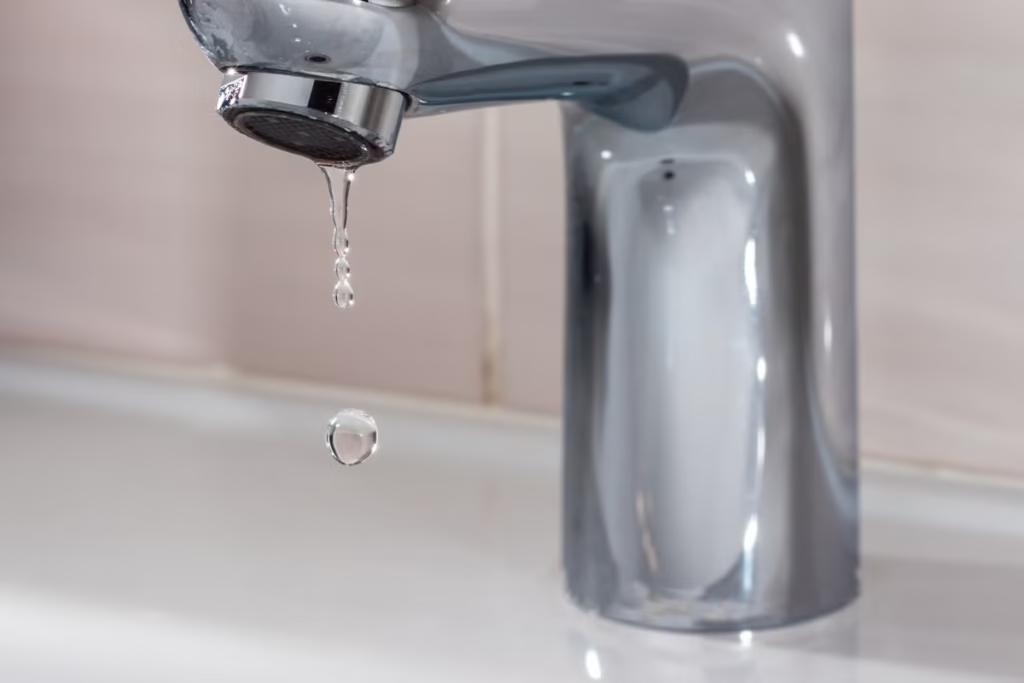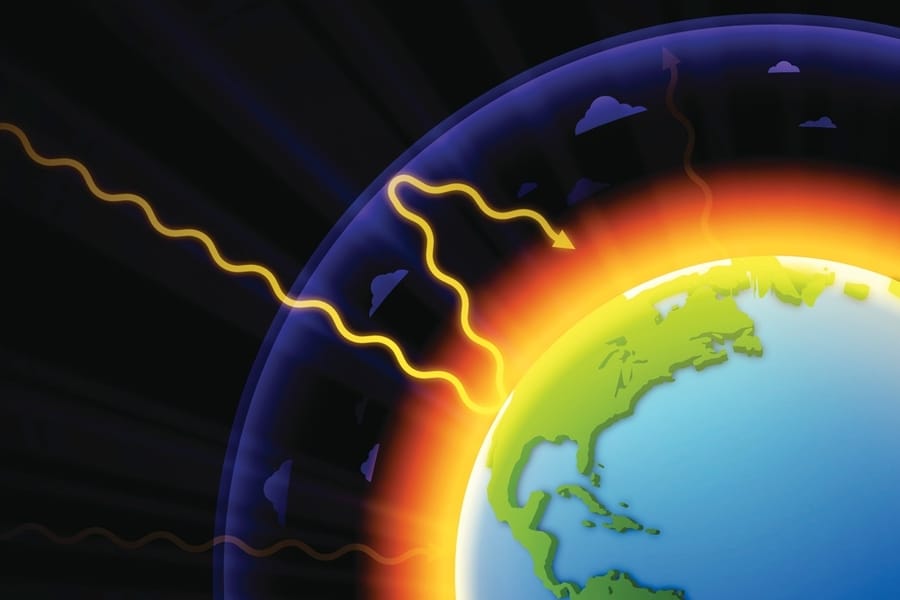What is a leak?
A leak is an unintended escape of a liquid or gas from a closed system. This is a very broad definition, so it is important to include context when talking about leaks.
The main leak types we treat at Cadis are:
- Harmful leaks: water, fuel or other liquid escapes from a pipe or container
- Wasteful leaks: water flushed down the drain for no reason
- Ecologically harmful leaks: machine leaking refrigerant gas
Harmful leaks
If liquids end up in the wrong places, there can be very harmful consequences. Some examples:
- Sprinkler tank leaks water into ceiling
- Water leak in data center destroys extremely expensive servers
- Fuel tank does not seal properly and loses charge
To protect valuable equipment such as servers or archives, a preventive leak detection system that performs a physical measurement at a specific location is the ideal solution. This involves the use of liquid-detecting cables and/or probes that, via an alarm system, immediately notify the relevant service at the slightest liquid detection.
To protect an entire building from leaks in an affordable way, our AquaVision line is the best solution. This module monitors your water consumption, learns the behavior of your building and detects abnormalities with an intelligent algorithm. In case of a leak, it can shut off the tap to the building part, such that no further damage or waste occurs.


Wasteful leaks
Typical water consumers can use much larger amounts of water than it is intended for when installed incorrectly or malfunctioning. Some typical situations:
- Leaking faucet: 1 liter per hour or 24 liters per day or 10,000 liters per year!
- Toilet that keeps flushing: 300 liters per hour or 7,200 liters per day.
- Defective pump backwash filter: 2,000 liters per hour or 48,000 liters per day.
This type of leak is usually not noticed until the water bill arrives. So a leak can easily go undetected for months and cost thousands of dollars.
One solution to this type of problem, is an algorithmic leak detection system. This smart device monitors your water usage and, in case of a leak, can alert the user and close a faucet.
Ecologically harmful leaks
Refrigerant gases are powerful greenhouse gases and have a direct impact on climate change. Therefore, it is important to detect and act quickly on refrigerant gas leaks.
Gas leaks are difficult to quantify, so this problem is usually solved by installing a sensor in the plant that sounds an alarm when it detects an amount of refrigerant gas in the room. The amount of refrigerant gas that leaked can then be determined when the machines are refilled.
Check out our refrigerant gas detectors on the Consumption Meters page.

